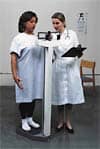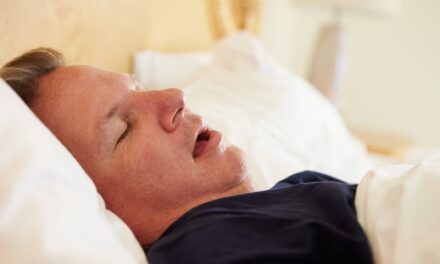| Man To Sleep Across America |
| “I plan on setting the bar high enough so future sleepers have difficulty breaking my record,” vows the self-proclaimed King of Sleep, Tom Wilson, who will embark on a restful journey on June 1.
Wilson plans to sleep across America this summer to raise awareness about sleep disorders. He will travel from Los Angeles to New York City in a vehicle dubbed the “Sleep Mobile,” which will move eastward only when Wilson is sleeping. In full costume, complete with a crown, he plans to visit television and radio stations, sleep-related hospitals, diagnostic centers, schools, and sleep institutes to promote sleep disorder awareness and the benefits of sleep and to pass out sponsors’ information. If all goes well, Wilson, founder of Nobody Productions, a Los Angeles-based film and TV production company, expects to turn the experience into a documentary. The campaign will last about 8 days, and Wilson is scheduled to make stops in Las Vegas; Salt Lake City; Denver; Omaha, Neb; Kansas City, Mo; St Louis; Chicago; Cleve-land; Pittsburgh; and Philadelphia. His stay in Chicago will include a visit to the Associated Professional Sleep Societies’ 17th annual meeting, which will take place on June 3-8. |
HIPAA Privacy Rule Takes Effect
Time is up to prepare for one major component of the Health Insurance Portability and Accountability Act of 1996 (HIPAA). The privacy rule, part of a set of standards required under HIPAA’s “administrative simplification” provisions, takes effect April 14.
The regulation protects medical records and other personal health information. Under the rule, covered entities must receive specific patient authorization before they can use or disclose protected information in most nonroutine circumstances. In addition, they must provide patients with written notice of their privacy practices and patients’ privacy rights.
In other HIPAA news, in February, the US Department of Health and Human Services (HHS) published in the Federal Register the final security standards for electronically transmitted or maintained health information. Also part of the administrative simplification provisions included in HIPAA, the security standards will be effective April 21. After that date, most covered entities will have 2 full years—until April 21, 2005—to comply. Under the security rule, covered entities must implement administrative, physical, and technical safeguards to protect individually identifiable health information when it is maintained or transmitted electronically.
Both final rules are available online at www.hhs.gov/ocr/hipaa.
| HIPAA Privacy Rule Takes Effect |
| Time is up to prepare for one major component of the Health Insurance Portability and Accountability Act of 1996 (HIPAA). The privacy rule, part of a set of standards required under HIPAA’s “administrative simplification” provisions, takes effect April 14.
The regulation protects medical records and other personal health information. Under the rule, covered entities must receive specific patient authorization before they can use or disclose protected information in most nonroutine circumstances. In addition, they must provide patients with written notice of their privacy practices and patients’ privacy rights. In other HIPAA news, in February, the US Department of Health and Human Services (HHS) published in the Federal Register the final security standards for electronically transmitted or maintained health information. Also part of the administrative simplification provisions included in HIPAA, the security standards will be effective April 21. After that date, most covered entities will have 2 full years—until April 21, 2005—to comply. Under the security rule, covered entities must implement administrative, physical, and technical safeguards to protect individually identifiable health information when it is maintained or transmitted electronically. Both final rules are available online at www.hhs.gov/ocr/hipaa. |
Study Finds Sleep Duration Link to Heart Disease

Both women who get too little shut-eye and those who sleep too late increase their risk of coronary heart disease, according to Najib T. Ayas, MD, a sleep disorders specialist who led the study at Harvard-affiliated Brigham and Women’s Hospital in Boston. Compared to 8-hour-a-night sleepers, women who reported sleeping an average of 9 hours or more per night increased their risk of coronary heart disease by 37%. Those who slept 5 hours or less per night were almost equally at risk, with a 39% higher risk of developing coronary heart disease than 8-hour sleepers.
“Given these results…adequate daily sleep should not be considered a luxury, but an important component of a healthy lifestyle,” say the authors of the study, published in the January 27 issue of Archives of Internal Medicine.
The authors could not explain the link between increased sleep duration and heart disease; however, they hypothesized that one possible reason might be that a confounder, such as sleep apnea, might lead to heart disease and an increased need for sleep. They also conjectured that the excessive sleep itself could be the culprit.
| Erratum On page 38 in the January/ February 2003 issue, in the Case Report titled “New Treatment for Cataplexy,” the first sentence of the sixth paragraph under the subheading Case Study incorrectly stated: “Ultimately, she was started on GHB at 3 mg in two nightly divided doses and tolerated this well with improvement in sleep continuity and resolution of cataplexy.” The sentence should have read that she was started on GHB at “3 g,” not “3 mg.” Sleep Review |


 Tom Wilson
Tom Wilson


